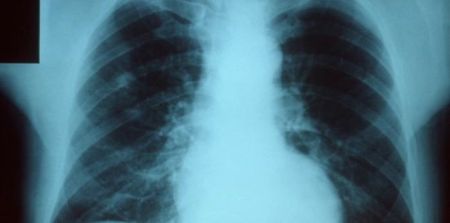A study which appears in the January 20 issue of JAMA claims that the hospitalisation of older adults with pneumonia is associated with increased short and long-term cardiovascular disease (CVD) risk, and suggests that pneumonia is an important risk factor for CVD. Pneumonia affects 1.2 percent of the northern hemisphere's population each year, and is the most common medical diagnosis for hospitalisations in the United States. CVD is a major cause of worldwide death and illness.
Linking Infection and CVD
The identification of CVD risk factors is important for making preventive strategies. To date, there have been conflicting results from several studies examining the association between infection and long-term CVD risk. Characterising short and long-term risk of CVD after infection could show that infection is a concrete risk factor for CVD.
The research team, led by Vicente Corrales-Medina, MD, MSc, of the University of Ottawa in Canada, examined whether pneumonia hospitalisation was associated with increased risk of short-term and long-term CVD. The team chose to study pneumonia because respiratory tract infections are frequently associated with CVD.
Community Based Cohort Study
The study followed two community-based groups. The Cardiovascular Health Study (CHS) was comprised of 5,888 participants aged 65 years or older who were enrolled between 1989 and 1994. The Atherosclerosis Risk in Communities (ARIC) study included 15,792 participants between 45-64 years of age who were enrolled between 1987 and 1989.
Participants who were hospitalised with pneumonia were matched with two controls. Pneumonia cases and controls were studied for CVD occurrence over the 10 year period after matching.
CVD Risk Persists After Pneumonia Hospitalisation
Out of 591 pneumonia cases identified in the CHS, 206 patients experienced CVD events (such as heart attacks, strokes, and fatal coronary heart disease) over 10 years after the initial pneumonia hospitalisation. In the ARIC study, 680 pneumonia cases were examined and 112 had CVD events more than 10 years after hospitalisation.
The analysis indicated that hospitalisation with pneumonia was associated with increased risk of CVD. The risk was four times greater in the first 30 days after pneumonia diagnosis. While it declined during the first year, it remained approximately 1.5 percent higher in the years which followed. After adjusting for demographics, cardiovascular risk factors and crude measures of frailty, the association persisted. Furthermore, the association spanned a range of infection severity.
“In our analyses, the magnitude of risk for CVD associated with pneumonia was similar or higher compared with the risk of CVD associated with traditional risk factors, such as smoking, diabetes, and hypertension. Thus, our results suggest that pneumonia is an important risk factor for CVD,” the research team wrote.
Source: JAMA
Image Credit: Wikimedia Commons
References:
JAMA. 2015;313(3):264-274. doi:10.1001/jama.2014.18229
Latest Articles
Pneumonia, CVD, respiratory tract infections, risk factors
A study which appears in the January 20 issue of JAMA claims that the hospitalisation of older adults with pneumonia is associated with increased short and...



























